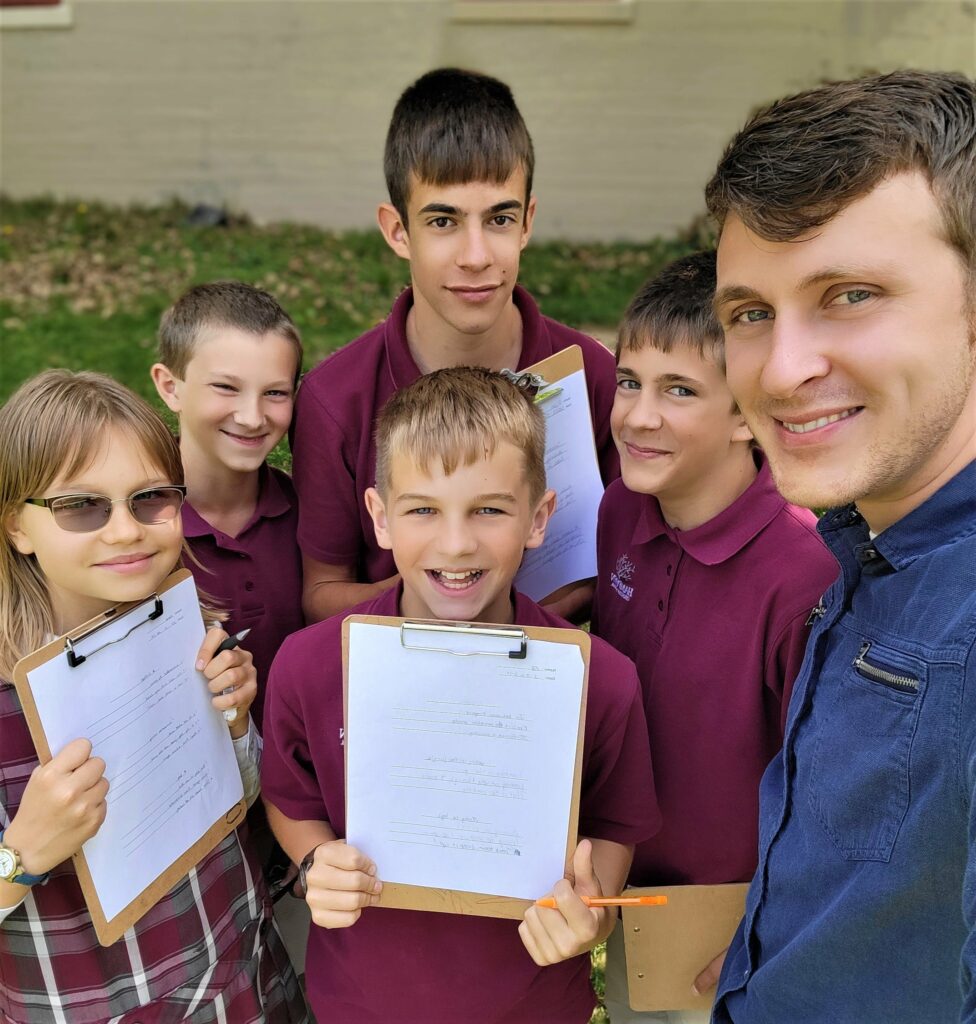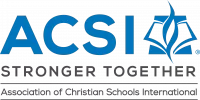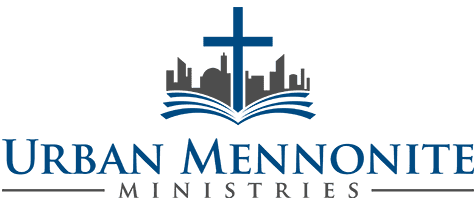Grades 4-8
Nurturing curiousity, maturity, and love for God.
Upper elementary and middle school age children increasingly reason abstractly and think analytically. This newfound ability often confounds the adults in their lives. They also begin to make more real-world applications of the concepts they are studying, as well as question their relevance.
Hampden Christian School’s task at this stage is to help their curiosity remain alive while nurturing a maturity in their question-asking and encourage a true respect for other ideas and persons. Especially important at Hampden Christian is inspiring a love for God and a vision to grow in their abilities so they can serve at home, in their communities, and in their future callings.
Students at this age are energetic and social, thriving on activity and collaboration. We continue to give these students plenty of time outdoors in active recesses and physical education activity. We engage them in hands on projects, field trips, and service-learning activities. We help them become responsible, serving people, nurturing their character through much one-on-one relationship and coaching. They practice their maturity in their frequent interactions with younger students, both in our adopted classroom program where they are paired with a preschool classroom, and in their daily walk to first recess, where they hold hands with a younger student on their walk to the playing field.

Curriculum Overview
Bible instruction is foundational for flourishing at this age. Every day, students are exposed to Biblical truths, memorize Scripture, and participate in discussions about the Bible. We encourage them to ask questions, pursue integrity, and allow wisdom to shape their lives. Bible class includes stories of godly heroes, basic knowledge from the Bible, and narratives of church history. Presentations, writing assignments, and projects enhance learning.
Our goal is to inspire students to dig deeper into quality literature, to listen and read attentively, and to comprehend and build on ideas. We teach students to respond to information by asking questions, making connections, and critiquing what they encounter. We guide them toward evaluating ideas based on truth and help them gain understanding and perspective. Students are introduced to a wide variety of genres. They spend time discussing themes, background, and stylistic elements of literature. They practice answering higher-level questions, making literary observations, and summarizing information. Time is invested daily in reading both orally and silently and listening to read-alouds by the teacher.
Students gain confidence expressing ideas through well-crafted and artful speaking and writing.
Opportunities are given to practice public speaking skills. Students engage in constructive discussions with others. They are encouraged to communicate respectfully and thoughtfully. Tools and techniques for writing are modeled, and writing abilities are developed through many projects. Students practice different literary forms: personal writing, expository writing, narrative writing, descriptive writing, persuasive writing, and poetry. The conventions of grammar, spelling, and vocabulary continue to be taught and reviewed in these grades.
Our history curriculum weaves together facts and information to create a picture of God’s world. Teachers use story-based instruction to maximize enjoyment. Maps, timelines, primary documents, pictures, flashcards, and living books enrich learning. Children are introduced to places, events, and characters; this exposure shapes their values and vision. They participate in history fairs, learn local history through field trips, and engage in student and teacher-developed projects.
Our library contains thousands of delightful books which include fiction, poetry, biographies, traditional literature, and informational resources. Every student is given the opportunity to browse and explore and experience the wonder of reading. Students in grades 6-8 learn the Dewey Decimal System and practice locating and shelving books. They are encouraged to read extensively and enjoy learning through literature. A library catalogue is available here. https://www.librarycat.org/lib/hcs_admin.
As in the lower grades, art class for grades 4-8 encourages creativity, curiosity, expressiveness, and discovery. Students continue to develop artistic, planning, and perseverance skills. They enjoy projects such as detailed paintings and challenging drawings. Our highly-qualified art teacher cultivates whole-class participation and enriches the experience with multi-dimensional artforms.
Students expand their scientific knowledge and abilities in grades 4-8. They study a broad range of topics: cellular biology, physics, geoscience, and chemistry. Labs, experiments, field trips, and science fairs enhance the learning experience. Students are scientists as they make predictions, investigate problems, research ideas, and give reports on scientific findings. Teachers recommend additional books and resources. Our junior high science teacher pushes students toward academic excellence.
We use technology sparingly in our educational program and carefully consider its benefits and limitations. Although students in grades 5-8 learn to use technology as a tool for research and writing, we believe that teacher presence and class collaboration cannot be replaced. Students learn keyboarding and document creation, gaining skills that enable them to master technology in further schooling or in a future career.
In our mathematics curriculum, students are given the opportunity to interact with ideas, investigate solutions, and communicate with one another. Numerical concepts and problem solving are built incrementally and practiced daily. Students master basic math and are introduced to higher-level mathematics, giving them tools to succeed in high school and college. Our 8th grade students usually complete Algebral.
Students build on the music foundation established in the lower grades and begin to read music, keep time, and sing harmony. They explore choral music, folk songs, and hymns. Much loved songbooks such as Songs for Life introduce students to a variety of beautiful and meaningful songs. Warmups, exercises, and activities enable whole-body participation in class. Our goal is to equip students to worship God through song, build community by singing, appreciate good music, and develop creativity through this art.
Because we care about the whole child—head, heart, and hands—three outdoor recesses are an integral part of our curriculum. These daily breaks enhance learning and test scores. Students practice good sportsmanship, teamwork, and coordination. Teachers support students’ development of physical abilities, strategies, and skills. Students learn team sports including basketball, soccer, and kickball. Teachers model and promote exercise and health. Track and field day, held toward the end of the year, showcases student achievement in physical domains. The mile run is a highlight as students log year over year gains.


